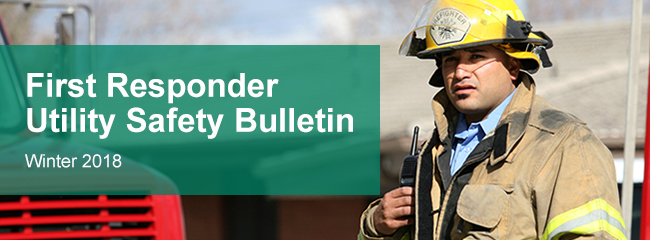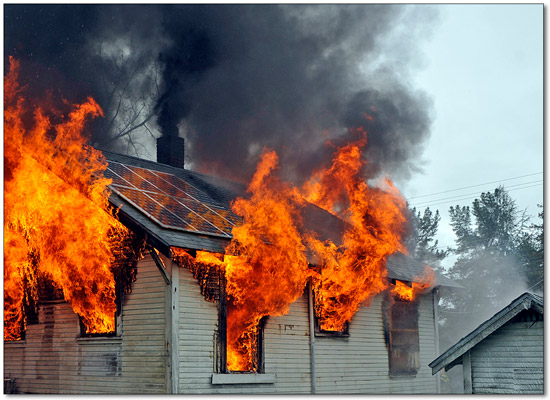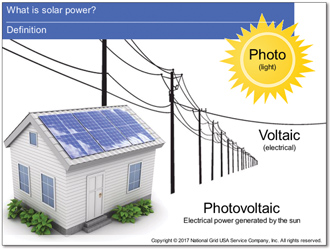Connect with us.

Solar-involved incidents: Are you prepared to respond?Installations of solar panels on residential and commercial properties are growing by leaps and bounds, particularly in National Grid’s service territory. Massachusetts (seventh) and New York (tenth) are among the top 10 states in installed solar capacity. In New York, state-supported solar power has increased 800 percent since 2011. Massachusetts installed 43 MW of solar capacity in 2011, more than 300 MW in 2017. What does this mean for first responders? The likelihood of encountering a fire or other emergency that involves photovoltaic (PV) solar systems is increasing dramatically. Since PV solar technology is relatively new to the area, handling incidents, where PV solar systems are involved, safely and effectively requires special training.
New potential hazards Although there are many potential hazards to consider, the main concern is that PV solar systems may have several components that can remain energized during a fire or other emergency. The panels themselves can be electrified, even at night or in the dead of winter. Inverters, which transform direct current into alternating current so it can be used in the property, can also be energized. Additionally, there are storage batteries, electric meters and system controls that may be carrying electric current. Additional potential hazards include: Structural risks
Electrical and chemical
Other
The most common concern among firefighters is the threat of electric shock and possible electrocution. A 2015 blaze in San Francisco resulted in two firemen receiving electric shocks, although neither was seriously injured. One was treated and released at a local hospital and the other remained on the scene. Documented cases of firefighters being electrocuted while battling fires involving PV solar systems are luckily rare, but the lack of quality free training on equipment and response tactics leaves first responders at risk. In some cases, policy for some fire departments is to use extreme caution – letting the building burn while focusing on protecting adjacent properties. Proper training saves lives and properties. Train to respond safely to incidents involving PV solar systems Traditional firefighting tactics are not sufficient when responding to incidents involving PV solar systems. Unfortunately, the availability of formalized education in this area is limited, can be expensive and often not produced from a first responder’s perspective. National Grid announces the addition of PV solar training modules to our online electrical safety training certification program. The new training modules are self-paced, and when successfully completed with the other electrical safety e-learning modules, a personalized certificate of completion will be issued.
Call Before You Dig Remind your colleagues, friends and the public to call your underground utility locator service toll-free at 811 well in advance of digging or moving the earth in any way. They will arrange to mark underground natural gas pipelines, underground electric power lines and other buried utilities so that everyone can work safely. Keep yourself, your team and the public safe. Register today, and complete your utility safety training. Visit firstresponder.ngridsafety.com.
|
||||||||||||||||||||||||||||||||||||||


